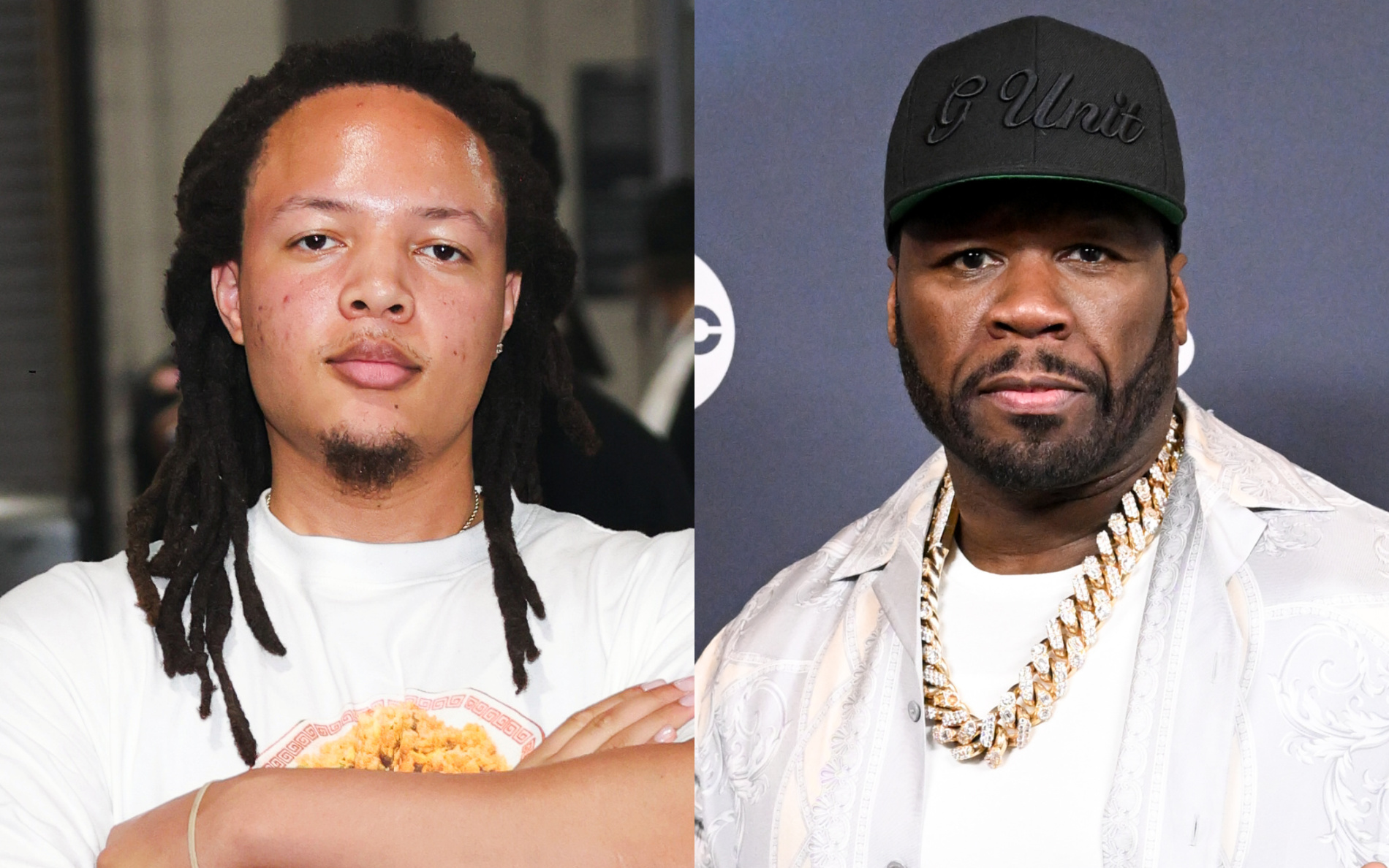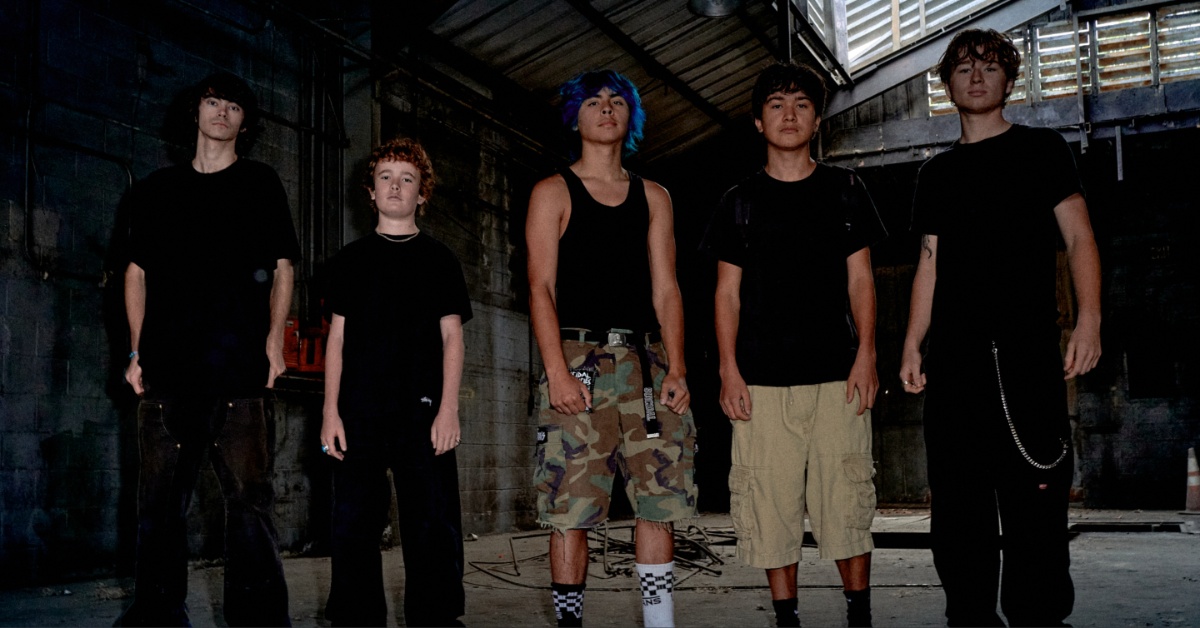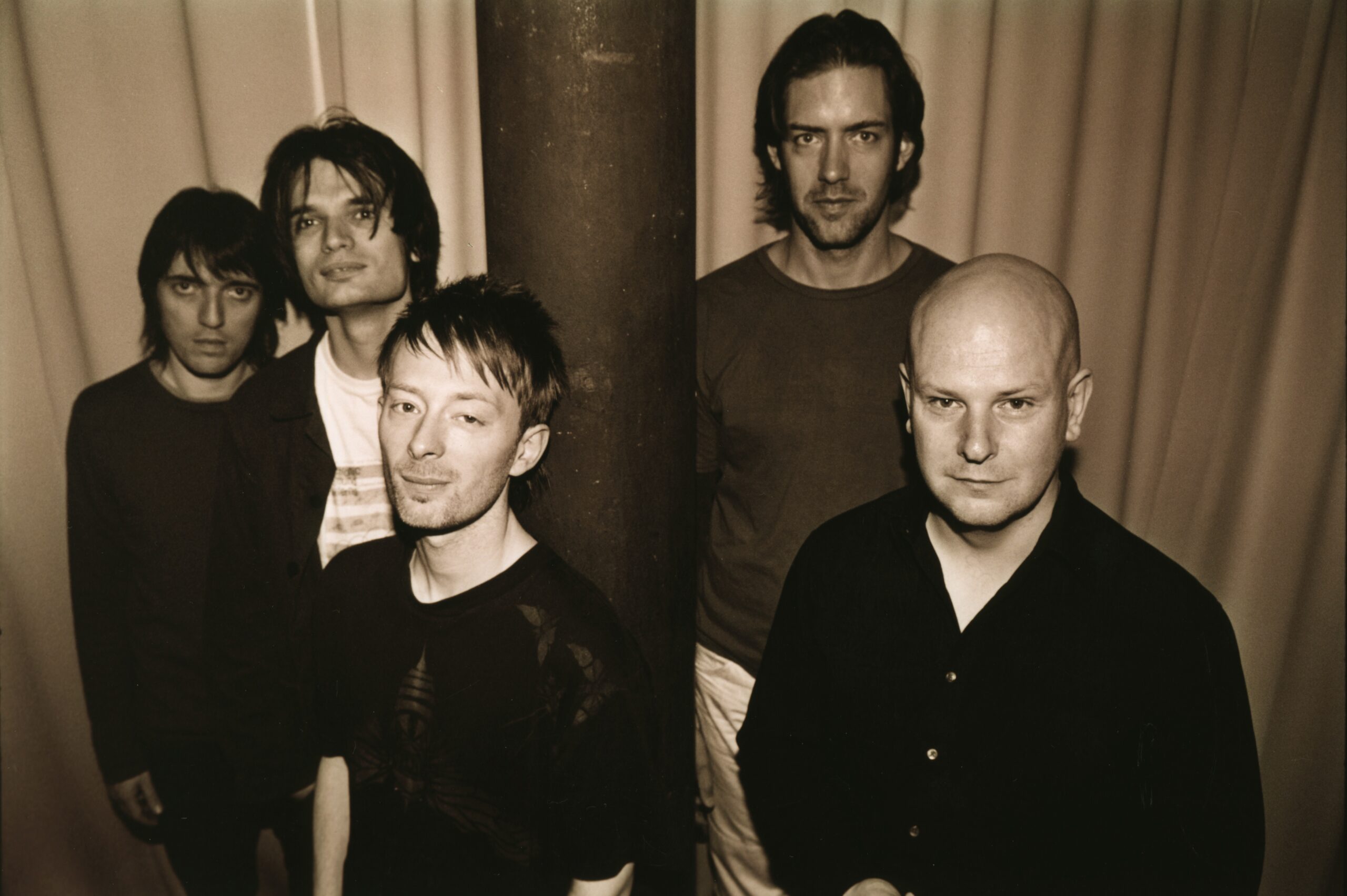CANDY have been an enigma from the start — a standout hardcore outfit whose sound defies the genre’s often obdurate boundaries. Both heavy and experimental, their songs hold space for metalcore, techno, industrial, noise, and shoegaze. Having credited a spectrum of influences ranging from Youth of Today to Stone Roses, the one thing we can rely on from CANDY is a challenging, chugging, corporeal experience. With 2022’s Heaven is Here, their sophomore album, having been already deemed a rising force in hardcore, CANDY showed us just how much depth and weight they were capable of. The album is like a punch to the throat, an intense, feral project seeped in anarchism, peppered with manic, anxious love songs. It’s a soundscape that sweats, spits, and bleeds like the circle pits it has since inspired.
Read more: Zulu are expanding the look and feel of hardcore
But if you were looking to their latest album, It’s Inside You, for another extreme listen just like the last, you’ve lost the plot. The new record, which was released earlier this month, dives into the world of digicore in full force, layering CANDY’s heavy, charged core with more electronic elements than ever before — with a host of features from people like Justice Tripp of Angel Du$t and MIRSY. It’s synthy, weaving in and out of angry, futuristic hypercore while somehow still drawing from the Britpop notes they’ve previously favored — there’s even a whisper of Linkin Park-style record scratching. Where Heaven Is Here embraced the aggressive energy of OCD and anxiety, It’s Inside You is a lesson about embracing uncertainty, despite its discomforts. To be thrown for a loop creatively is a rare thing these days, so leave any stale hardcore expectations at the door — and lean in. It’s a gift.

Every review of It’s Inside You thus far cites about 10 genres and sounds in describing the album. And you can definitely hear a lot more experimentation on this, which feels different than the last release. Rather than try and patch together my own string of “music words,” I’m curious how you would describe the project yourselves.
ZAK QUIRAM: A large influence on this record was Atari Teenage Riot and the label they started, Digital Hardcore. They were seamlessly able to blend so many styles of music — hardcore, punk, techno, speed metal, etc. — all while maintaining high energy and excitement. This band is highly underrated across any genre they touch. Since the inception of CANDY, we’ve wanted to try and craft our own version of the blend of those styles, mainly through the hardcore lens. Wanting to keep it high energy and unpredictable. It feels like It’s Inside You is the record we’ve been working on making since the beginning.
What were the ingredients, sonically, and what references, inspirations? What was going on between the last album and this that led to the shift? How would you describe it to someone who hasn’t heard it yet — both to a fan and to someone unfamiliar with CANDY?
MICHAEL QUICK: We wanted to highlight a few different things, one of them being the sort of parts — mosh parts, heavy riffs, tempos, vocal moments, etc. — that really energize people at our shows. Another thing was the incorporation of electronic elements that haven’t been done to death in heavy music. People call us industrial often, but that isn’t what we look to. We really wanted to incorporate drum-and-bass-style breakbeats, EBM-style synths a la Nitzer Ebb or DAF, and DJ scratching just to give people a sense of unpredictability because to us that’s… fun. We were looking to combine things that on paper don’t make sense together or haven’t historically been combined.

What do you think makes one of your projects inherently yours? What is the ethos or genetic makeup of a CANDY song that sets it apart — whether it’s more melodic, industrial, or brutal, heavy hardcore?
QUICK: One thing that really signals that something is completed for us is when we feel like each component could be a reference to multiple different things. The song “eXistenZ,” for example, clearly references Cronenberg, but it started with Zak’s lyrics that were interpreting Sartre. The music of that track has Napalm Death-style riffs and time changes but AFX-style breakbeats layered on top. So stylistically adding layers to any element is important to us.
How did you decide on this project’s name? What’s the meaning behind that? And how do you feel like that meaning is carried through each track?
QUIRAM: We wanted this record to be motivational after a dark few years everyone experienced. It felt like that’s what we needed personally in our lives and wanted to try and share some light with anyone who listened to the record. Some of the working titles felt very “youth crew across America.” In that same vein, we wanted to channel something that everyone could tap into. It’s Inside You is simply that. Everything you need to push forward and conquer comes from within. Definitely wanted that theme woven into the DNA of the record, but it’s highly touched on in “Faith 91.” While some of the other songs bring you through the downsides and low points in life — those songs aren’t about dwelling on the negatives but about pushing through those moments. “You Will Never Get Me” is a bit of a double entendre about feeling misunderstood and physically not letting anyone opposing break you down.
There are so many great features on this album — one being Justice Tripp. How and where did you first meet Justice? What drew you to him for this project?
QUICK: I met Justice a long time ago at a tattoo shop in Richmond. He probably doesn’t remember, but I was getting tattooed, and the tattooer, our friend Marina, gave me this rubber ducky to squeeze, and Justice was there waiting for an appointment, and he thought it was hilarious. I later joined Angel Du$t and played in that band with him for about two years. We always wanted to bring Justice into the CANDY universe because so much of his work is, to me, as good as hardcore songwriting can get — and sets a really high bar we always at least strive to replicate
Since the very beginning, how would you say your sound has changed? What about your style of performing?
QUICK: Honestly, I don’t feel like our style of performing or writing has really changed. If you can imagine this project as a marble sculpture that a sculptor is carving out, every project and tour is just a layer of the sculpture that is being carved away and getting closer to the final project that we’ve been working toward step by step over the years. I think there are honestly elements on the demo that were just ultra-rudimentary versions of what we’re doing now.

I really love the art of this album. Can you speak to how that came about?
QUIRAM: We wanted it to feel brighter than all of our last records, and we knew we wanted Nick Atkins to do it. He’s someone we’ve wanted to work with since the inception. We gave him the theme and a couple of ideas and let him do his thing. I really love how it came out. I think it fits the music perfectly. Michael and I talk shop about CANDY every single day for the past six years or so. When we start thinking about the full package of the record, we spitball for hours and hours about references, artists we have in mind, color scheme, etc. One thing that always happens is our visions end up at the same endpoint. That always feels crazy to me that Michael and I have such a distinct vision for everything that CANDY should and should not be even before we start describing it. That also happened with the art for this record.
What are you hoping listeners will get out of this project? What can they expect from you next?
QUICK: For one thing, we hope it just helps listeners feel energized and encouraged. For us, a lot of our favorite music gives us some form of energy and drive — whether it be in the most simple and lame ways like just the motivation to get fired up and go on a run, or even in more impactful ways like listening to a track to psych yourself up to finally gain the confidence to confront some major problem in life.
One other thing we hope people can take from it is that we hope it helps people realize that, whether it be creatively or just with the way you look at your own life, you don’t have to listen to or subscribe to the things that people say “make sense.” No one told us that breakbeats over Hatebreed-style riffs would make sense, but there was a spark of an idea in our heads that excited us despite there being a lack of precedent for it, so we decided to make our own precedent, and it was extremely gratifying. I think that principle can be applied on a creative, artistic level but also to the ways that we look at the systems of our culture, which are woefully outdated at best and actively set up to oppress us at worst.

I feel like heavy music has a different purpose and meaning for everyone. What would you say it does and means for you — as a kid, and now, as an artist in the space?
QUICK: I think for me — and also to a lot of people, whether they would verbalize it this way or not — heavy music scratches an itch many people in our society look for in different ways. I think that thing that a lot of people crave is an outlet where you don’t feel like you have to hold back and don’t feel like you’re being constrained by anything. I think the intensity of “heavy” music, whether it comes from super distorted guitars, yelling and mosh pits, or techno kick drums and raves, allows people to drop the expectations that everyone else puts on them and let go in a super freeing way
What’s the biggest misconception about CANDY?
QUIRAM: I think the biggest misconception is that we are an industrial-leaning band. When we’re involving electronics into our songs, that’s generally pretty low on the list of references we’re pulling from. “Digital hardcore”/hypercore.
QUICK: We are a very referential band undeniably, but to Zak’s point, I think the biggest misconception about us is that we approach this project in a way of trying to fit into any genres and categories that have been preestablished. I think music journalists and fans and even musicians tend to always be trying to figure out how to slot all music into these established genres, and that’s fine. It’s helpful to categorize if you’re trying to figure out how to process something, but our goal with the music is almost to specifically figure out ways to not fit into any category. We’ll always say we’re a hardcore band, but that’s more about the community of people we feel we’re a part of.







